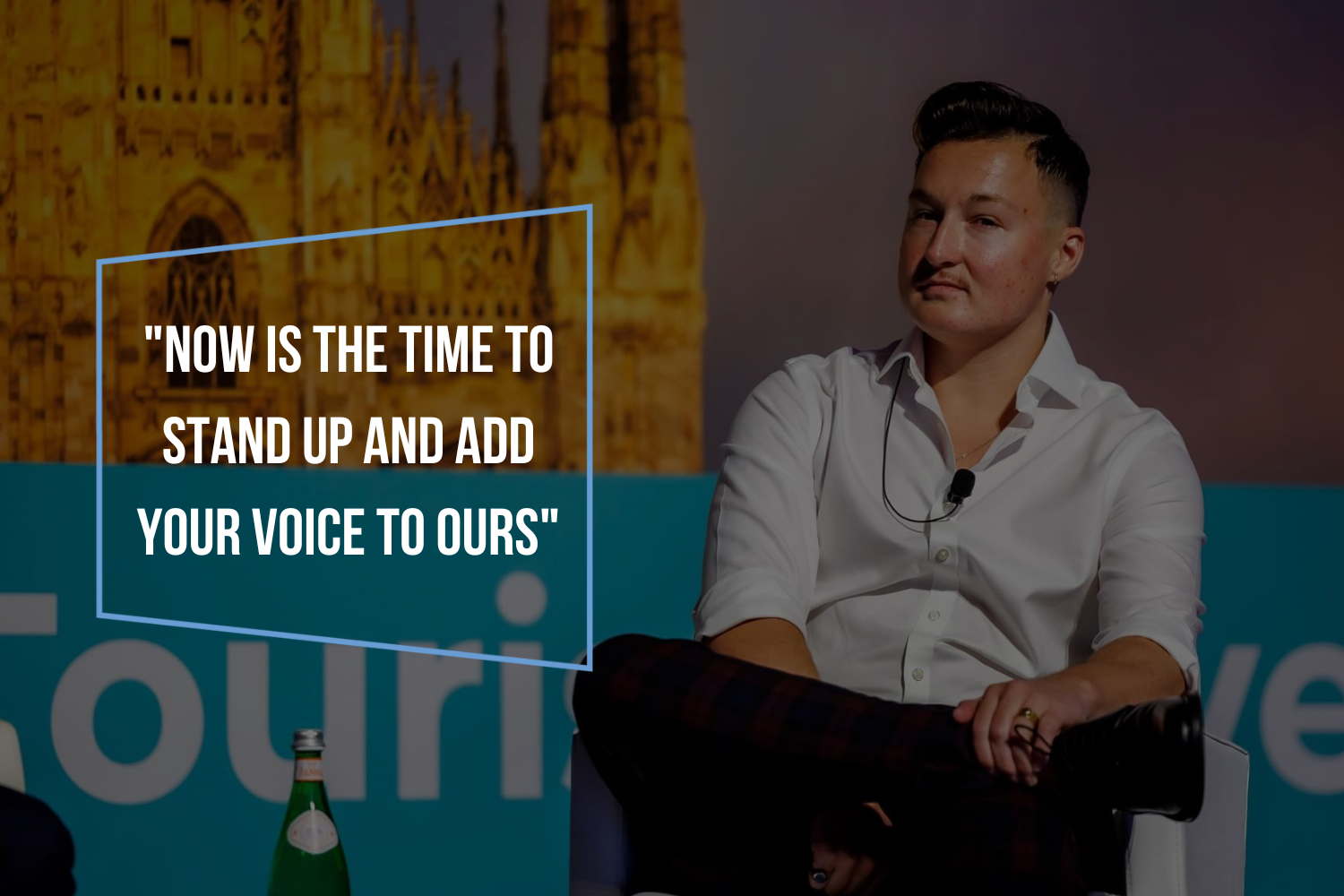Welcome to the third of our Pride blogs, featuring a series of our amazing guest speakers for the month. Next up we have Max Siegel. Max is a transgender man, LGBTQ+ inclusion consultant and the founder of Trans&.
Q1 - Max, we’re excited for Pride Month, can you quickly introduce yourself and some of the work you do?
Of course! My name is Max Siegel, my pronouns are they/he and I am a proud transgender man, LGBTQ+ inclusion consultant, content creator @theyrequeer, speaker and activist.
The quick version of how I ended up doing this job is; After working in events and marketing, I headed up partnerships for the LGBTQ+ dating app HER. I was starting my medical transition at the same time as I was in that role, so I started sharing my journey on Instagram. After a few years I realised that my favourite thing about my job was bringing lived experiences to internal and external LGBTQ+ inclusion at work, so now what I do combines both of those experiences. I now work directly with companies to help them be more inclusive of the LGBTQ+ community, both for their customers and team members.
As part of that, I run a company called Trans& which specialises in Trans inclusion consulting, speakers, and content, with specific expertise in HR, recruitment and DEI.
Q2 - I know we have spoken before and you have mentioned the current environment is one of the worst it’s been for trans people. Why do you think that is?
We’ll need way more words to go into what is behind the current wave of anti-trans narratives in the media and politics currently, so instead I’ll start by sharing some hard facts to give you an idea of what it is like to be a Transgender person in the world today.
Between 2012 and 2022 there was a 600% increase in Trans related headlines in the British press, with 90% of them being in some way negative (relating Transgender people to criminality or undesirable characteristics).
LGBTQ+ hate crimes in the UK have increased by 36% in the last year, and hate crimes against Trans people have increased by 56%, that’s the highest one-year increase ever recorded.
The waiting times for first appointments for gender-affirming care in the UK (eg; accessing hormone replacement therapy) currently sit at between 4 to 6 years.
Although it may seem like Trans people have very suddenly been catapulted into the spotlight, what we’re seeing is the culmination of over 10 years of growing anti-trans sentiment both online and in the media.
There are varying schools of thought on why this is, writers like Shon Faye have deep-dived into the topic in her book The Transgender Issue, but what is for sure is that the preoccupation with Trans people is a reiteration of the same narratives we have seen about other marginalised groups. The idea of Trans people as criminals, dangerous to children and women, and generally “other” is an almost direct rewrite of the language used to talk about gay men and lesbians in the latter half of the 20th century.
More recently, Trans people are providing a convenient distraction and scapegoat in a post-Covid world. With social and economic disruption on a worldwide scale, channelling the fear and frustration of the public onto a group of people whose voices are already spoken over seems like an easy way to deflect attention.
Q3 - What can someone be doing more of, that isn’t necessarily from the LGBTQ+ community, but wants to be an ally?
The word allyship often scares people because it conjures up images of big charity donations or grand gestures, but really it’s about using your power and influence, whatever that may be, to create positive change for the people you are allied with.
That means that if you’re an HR manager, when asked to review the employee handbook you check for gender-neutral language or LGBTQ+ inclusivity. It means donating the cost of a coffee to someone’s fundraiser. It means sharing your pronouns at the beginning of a meeting even if no one else did. There are so many small actions that can be considered allyship, often which take very little from the person giving them but mean a huge amount to the person receiving them.
The final part of supporting a Trans person is the importance of educating yourself. Just by reading this interview, you are doing that, taking the time to learn from someone who is sharing their lived experience. There are many folks out there who, like me, share resources and insights for free on their lives. There are also books, films, podcasts, and any number of ways to consume content which will help you learn more directly from Trans people themselves.
Q4 - Any closing thoughts or comments?
Trans people are living in the most hostile climate we have seen in decades. The LGBTQ+ community globally are also approaching similar levels of fear, enduring political attacks as well as physical ones.
Now is the time to stand up and add your voice to ours.
If you are interested in getting Max in to talk at your company or organisation about LGBTQ+ inclusion, please send us a message at hello@thatday.uk
